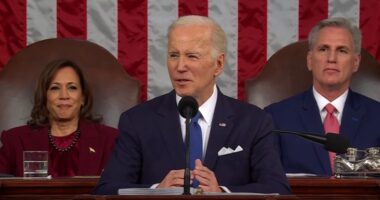
Gary Gensler, President Biden’s pick to run the Securities and Exchange Commission, is expected to seek higher fines and new disclosure requirements on public companies, lawyers and former regulators say.
Mr. Biden nominated Mr. Gensler earlier this month to head the agency that oversees U.S. securities markets, succeeding Jay Clayton. The Senate needs to confirm his choice for it to take effect, a process for which there is still no confirmed timeline. Last week, Mr. Biden named SEC Commissioner Allison Herren Lee to serve as acting chairwoman in the interim.
Mr. Gensler headed the U.S. Commodity Futures Trading Commission from 2009 to 2014, at which time he spearheaded the creation of a new regulatory framework for derivatives. Prior to running the CFTC, he had spent 18 years at Goldman Sachs Group Inc., where he rose to co-head of finance, and later served in the Treasury Department during the Clinton administration.
If confirmed, Mr. Gensler will likely be tasked with toughening regulation of U.S. public companies and the finance industry. Although he hasn’t outlined his plans for the role yet, his reputation as a bold regulator makes it likely he will beef up enforcement efforts and push for new disclosure rules, lawyers and former regulators said.
Finance chiefs already anticipate spending more time and money to comply with new disclosure requirements in the next few years, said Howard Berkenblit, a partner at law firm Sullivan & Worcester LLP. “They’re bracing themselves for more regulation,” he said.
The SEC’s rule-making process usually starts with a proposal that the five commissioners vote on. If a majority agrees to advance the initiative, the public gives feedback, followed by another tally among the commissioners. The SEC under Mr. Gensler will have a three-to-two Democratic majority.
Observers said they expect the agency to ask companies for additional insights, including into issues such as climate-change risk, workforce diversity and political spending. Mr. Biden campaigned on forcing publicly traded businesses to provide more details on environmental risks and greenhouse-gas emissions. He also said he would require these companies to disclose data on the composition of their boards. At the moment, only some U.S. companies provide environmental, social and governance information.
A spokeswoman for the Biden administration and a spokesman for the SEC declined to comment. Mr. Gensler didn’t respond to requests for comment.
As SEC chairman, he would likely take a different approach to rule-making than his predecessor. Under Mr. Clayton, the agency eased certain rules as part of a shift toward more principles-based, company-specific disclosures to simplify information for investors. Now, the SEC could return to strict, prescriptive rule-making again.
“Everyone should expect that a Gensler SEC will be under pressure from Capitol Hill to distinguish itself from a Clayton SEC by being perceived as tougher and smarter,” said Joseph Grundfest, a professor of law and business at Stanford University and a former SEC commissioner.
Mr. Gensler, who is teaching courses on financial technologies at the Massachusetts Institute of Technology, will likely bring new ideas on how to detect patterns and issues in enforcement or examination work, lawyers said. To increase the SEC’s enforcement powers, Mr. Gensler is expected to ask Congress for more resources, lawyers said.
The SEC was authorized to spend $1.82 billion in fiscal 2020, up 8.4% from the previous year. At the time of Mr. Clayton’s departure in December, the agency had about 4,500 employees. The SEC also needs to fill key roles, such as head of the enforcement and corporate-finance divisions, as well as chief accountant.
Fines could also go up as part of a more robust prosecution effort. “The [SEC’s] staff will feel empowered to drive harder bargains and impose higher fines,” said Jason de Bretteville, chairman of the litigation department at law firm Stradling Yocca Carlson & Rauth.
The SEC imposed $1.6 billion in fines on public companies traded on major U.S. exchanges in fiscal 2020, up 6.7% from the previous year, according to the NYU Pollack Center for Law & Business and consulting firm Cornerstone Research. Between fiscal 2010 and fiscal 2016—when the SEC was run by appointees of former President Obama—fines averaged $1.37 billion a year.
While a Gensler SEC could bring more regulation, many investors are cheering his nomination. Mr. Clayton didn’t always put them first, shareholders said. For example, in recent months, the SEC raised the bar for investors to submit proposals at companies’ annual meetings, heightening concerns on their ability to weigh in on important issues.
Mr. Gensler was a dogged advocate for investors at the CFTC, said Amy Borrus, executive director of the Council of Institutional Investors, a shareholder group. “He understands the importance of transparency to make sure markets are fair and efficient,” she said.
Write to Mark Maurer at [email protected]
Copyright ©2020 Dow Jones & Company, Inc. All Rights Reserved. 87990cbe856818d5eddac44c7b1cdeb8








